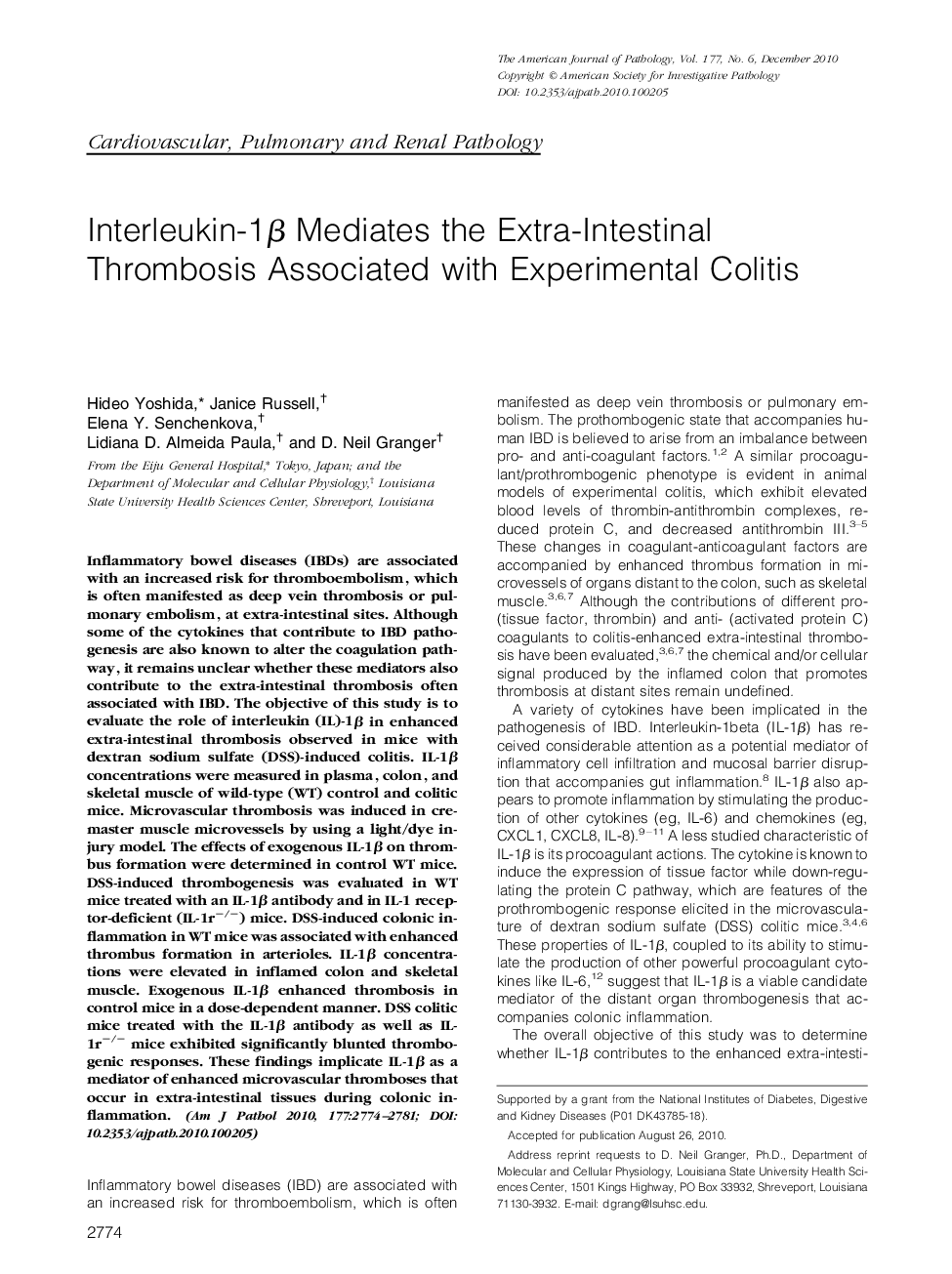| Article ID | Journal | Published Year | Pages | File Type |
|---|---|---|---|---|
| 5934445 | The American Journal of Pathology | 2010 | 8 Pages |
Abstract
Inflammatory bowel diseases (IBDs) are associated with an increased risk for thromboembolism, which is often manifested as deep vein thrombosis or pulmonary embolism, at extra-intestinal sites. Although some of the cytokines that contribute to IBD pathogenesis are also known to alter the coagulation pathway, it remains unclear whether these mediators also contribute to the extra-intestinal thrombosis often associated with IBD. The objective of this study is to evaluate the role of interleukin (IL)-1β in enhanced extra-intestinal thrombosis observed in mice with dextran sodium sulfate (DSS)-induced colitis. IL-1β concentrations were measured in plasma, colon, and skeletal muscle of wild-type (WT) control and colitic mice. Microvascular thrombosis was induced in cremaster muscle microvessels by using a light/dye injury model. The effects of exogenous IL-1β on thrombus formation were determined in control WT mice. DSS-induced thrombogenesis was evaluated in WT mice treated with an IL-1β antibody and in IL-1 receptor-deficient (IL-1râ/â) mice. DSS-induced colonic inflammation in WT mice was associated with enhanced thrombus formation in arterioles. IL-1β concentrations were elevated in inflamed colon and skeletal muscle. Exogenous IL-1β enhanced thrombosis in control mice in a dose-dependent manner. DSS colitic mice treated with the IL-1β antibody as well as IL-1râ/â mice exhibited significantly blunted thrombogenic responses. These findings implicate IL-1β as a mediator of enhanced microvascular thromboses that occur in extra-intestinal tissues during colonic inflammation.
Related Topics
Health Sciences
Medicine and Dentistry
Cardiology and Cardiovascular Medicine
Authors
Hideo Yoshida, Janice Russell, Elena Y. Senchenkova, Lidiana D. Almeida Paula, D. Neil Granger,
